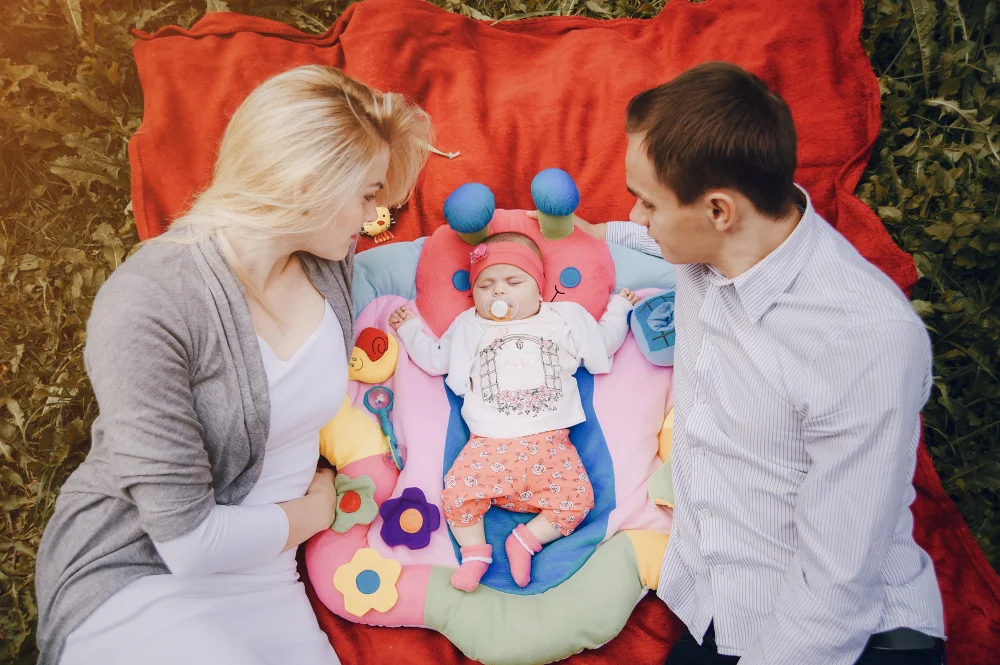The term What is Considered a Newborn refers to a baby from birth up to 28 days old. This early stage of life is extremely important for a child’s growth, development, and health. During this period, babies experience rapid physical changes, reflex development, and emotional bonding.
Understanding what is considered newborn helps parents provide proper care, recognize signs of healthy development, and address potential health concerns early.
Newborn Age and Physical Development
In the first month of life, a newborn undergoes significant physical growth. At birth, most babies weigh between 5.5 to 8.8 pounds (2.5–4 kg) and measure 18–22 inches (45–55 cm) in length.
Their reflexes, such as sucking, grasping, and the Moro reflex, are already active, helping them adapt to the new environment outside the womb. Newborns sleep frequently but in short intervals and often wake up due to hunger or discomfort.
Key Physical Milestones in Newborns
- Weight and height: Normal ranges vary, but growth is rapid.
- Reflexes: Sucking, grasping, and the startle reflex help survival
- Sleep patterns: 16–18 hours a day in short bursts.
- Feeding: Every 2–3 hours due to a small stomach.
Monitoring these milestones ensures the baby is healthy and developing appropriately.
What is Considered a Newborn: Health Considerations
During the first month of life, newborns have very delicate immune systems, making them more susceptible to infections, jaundice, feeding issues, and other health concerns. Parents must monitor their baby closely for any signs of illness, such as persistent crying, poor feeding, or unusual lethargy.
Regular pediatric check-ups are essential to track growth, ensure vaccinations are given on time, and detect any potential problems early. Proper care, including maintaining hygiene, monitoring temperature, and observing feeding patterns, is vital to support the baby’s overall health and development during this critical stage.
What is Considered a Newborn: Health Considerations

Feeding is one of the most important aspects of newborn care, as it directly affects growth, immunity, and overall development. In the first month, babies need frequent feeding because their stomachs are very small and cannot hold large amounts of milk at once.
Breastfeeding is highly recommended as it provides essential nutrients and antibodies that protect the baby from infections, while formula feeding is a safe alternative if breastfeeding is not possible.
Newborns typically feed every 2–3 hours, including during the night, and proper burping after each feeding helps prevent gas and discomfort. Monitoring weight gain, wet diapers, and alertness during wakeful periods helps parents ensure their baby is receiving adequate nutrition and growing healthily.
Sleep Patterns and Newborn Behaviour
Sleep is essential for newborn growth and brain development. Most newborns sleep 16–18 hours daily, but in short, irregular intervals. Sleep is often interrupted by hunger, diaper changes, or discomfort. Crying is their primary way of communicating needs.
Tips for Better Sleep
- Swaddling: Provides comfort similar to the womb.
- Sleep environment: Quiet, dimly lit, and safe.
- Routine: Gentle bedtime cues help gradually establish habits.
- Observation: Monitor for overstimulation or irregular breathing.
What is Considered a Newborn: Emotional Bonding and Interaction

The newborn stage is a critical period for forming emotional connections between the baby and parents. Bonding strengthens attachment, supports cognitive development, and fosters a sense of security. Simple actions like holding the baby close, gentle touch, talking, and singing help stimulate the baby’s brain and enhance social and emotional growth.
Eye contact during feeding or playtime encourages recognition and trust, while skin-to-skin contact regulates body temperature and reduces stress for both the baby and the parent.
Consistent, loving interaction during these early weeks lays the foundation for healthy emotional development and long-term wellbeing.
Recognizing Warning Signs in Newborns
Parents must be aware of early warning signs indicating potential health issues. Immediate medical attention can prevent complications and ensure a safe transition through the newborn phase.
Warning Signs to Watch in Newborns
- Persistent vomiting or refusal to feed.
- Fever above 100.4°F (38°C).
- Weak or unusual crying.
- Difficulty breathing or a bluish skin tone.
- Severe jaundice or swelling.
Conclusion: What Is Considered a Newborn Baby
Understanding what is considered newborn is essential for every parent or caregiver. The first 28 days of life are filled with rapid physical growth, reflex development, emotional bonding, and the establishment of feeding and sleep patterns. During this period, careful attention to health, nutrition, and early signs of illness ensures a smooth transition into infancy.
Newborns require patience, love, and consistent care. Monitoring weight, sleep, feeding patterns, and behaviour allows parents to respond to their baby’s needs effectively. Bonding through touch, voice, and eye contact not only strengthens the parent-child relationship but also supports healthy cognitive and emotional development.
By understanding the newborn phase, parents can provide a safe and nurturing environment, helping their child thrive from the very beginning of life. Awareness of warning signs, proper nutrition, and routine pediatric care ensures that babies have the best start possible during this critical stage.












